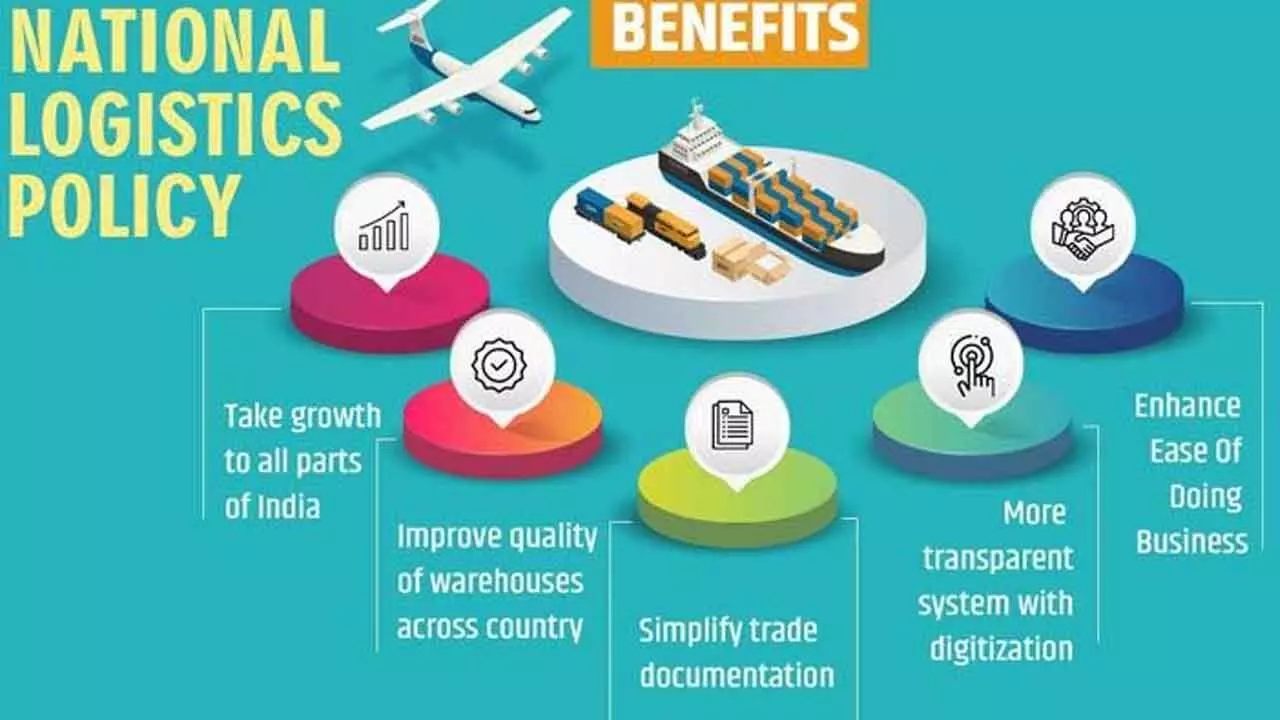NLP Can Revolutionise Trade With A Single-Window For Seamless Logistics
It minimises the scope for corrupt practices, promotes fair trade practices and strengthens regulatory oversight
NLP Can Revolutionise Trade With A Single-Window For Seamless Logistics

The improved infrastructure has facilitated smoother movement of goods, reduced transit times, and enhanced connectivity, thereby benefiting all parties involved in the logistics and supply chain ecosystem
In today's interconnected global economy, India’s trade and logistics industry plays a critical role in facilitating the movement of goods across borders. As per the Ministry of Ports, Shipping, and Waterways, the total cargo that has been handled increased to 817.98 million tonnes (MMT) during April-March 2023-24 from 783.62 MMT during April-March 2022-23. During April-March 2023-24, the quantum of cargo handled at major ports increased by 4.38 per cent as compared to April-March 2022-23.
However, the industry still faces numerous challenges that impact its efficiency and profitability. Major challenges faced by the shipping and logistics industry are global trade tensions and geopolitical instability, increasing pressure to reduce carbon emissions, labour shortages, and skill gaps with rapid digitization.
Recognising the significance of logistics in trade facilitation, the government of India introduced the National Logistics Policy (NLP) in September 2022, coupled with a single-window system to revolutionise trade and economic development along with seamless logistics operations. It primarily serves as a strategic roadmap for enhancing the efficiency, resilience, and competitiveness of India’s logistics infrastructure.
The significance of National Logistics Policy is the implementation of a single-window for seamless logistics.
Consolidating cross border trade:
NLP is working towards consolidating all trade-related requirements into a single digital platform, where EXIM businesses can expect simplified procedures, reduced paperwork and faster clearances. This further facilitates seamless cross-border trade by enabling the electronic exchange of trade data between trading partners, customs authorities, and other regulatory agencies.
Real-time tracking: Businesses can track and trace their shipments in real-time through advanced technologies implemented into the shipping routes, ensuring timely delivery and reducing the risk of loss or damage at each stage, leading to enhanced efficiency and reduced operational costs.
Enhanced accountability: The adoption of digital platforms and electronic data interchange through a single-window fosters greater transparency and accountability in trade operations, minimising the scope for corrupt practices, promoting fair trade practices, and strengthening regulatory oversight.
Benefits and impact:
Pushpank Kaushik, CEO of Jassper Shipping, says, “Implementation of NLP with a single-window has yielded several far-reaching benefits for trade facilitation and economic development of the nation.
Improved efficiency, streamlined operations, digitisation and transparency have lowered the logistics costs of international trade, and improved regulatory compliances ultimately leading to increased exports.
It has also helped to promote stable coordination and movement of goods in cross-border trade operations.”
This has positively impacted stakeholders from various sectors, including transportation, infrastructure, manufacturing, logistics infrastructure developers, port authorities, and government agencies. The improved infrastructure has facilitated smoother movement of goods, reduced transit times, and enhanced connectivity, thereby benefiting all parties involved in the logistics and supply chain ecosystem.
Challenges and opportunities:
While the NLP and the single-window facility offer potential benefits, some challenges need to be addressed. Once the challenges are rightly addressed, developing and maintaining a robust single-window platform with technological expertise and investment will smoothen the process facilitating cost reductions, and enhancing efficiency, and ease of operations. Stakeholders can enjoy maximum returns and benefits with time once the new framework is successfully implemented.
The effective implementation of a single-window NLP can make India a more attractive destination for both domestic and international trade. Through proactive policy measures and collaborative efforts, India can capitalise on the transformative power of logistics modernisation to unlock new trade opportunities and propel itself to become the logistics powerhouse of the globe.

